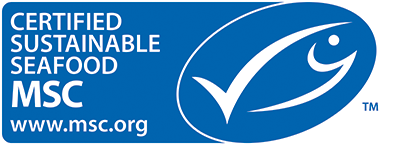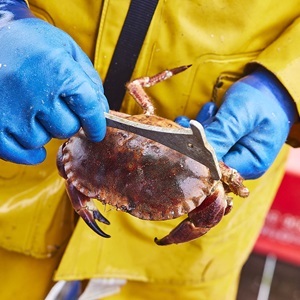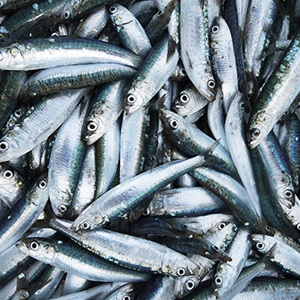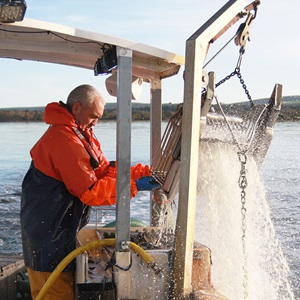The Marine Stewardship Council (MSC) is an international non-profit organisation on a mission to stop overfishing. For over 25 years, we have been working with fisheries, seafood companies and scientists to help protect the oceans around us, and safeguard seafood supplies.

What does the ecolabel mean?
The blue MSC ecolabel is the world’s most recognised label for sustainable seafood. It is found on retail products and in restaurants identifying fish and seafood that have been caught in a sustainable way. The ecolabel is only awarded to well-managed fisheries that meet the MSC’s independently verified standards for sustainable seafood production. When you purchase a product with the MSC ecolabel on it, you...
- Can trust where the fish or seafood comes from
- Are rewarding and incentivising sustainable fishing
- Are protecting fishermen’s livelihoods, communities and traditions
- Are ensuring there will be plenty of fish left in the sea
- Are helping keep seafood on your plate for this and future generations
Why do we need to certify seafood?
Overfishing is a grave threat to our oceans and the reason the MSC ecolabel exists. More than a third of fish stocks are estimated to be fished at unsustainable levels.Overfishing is driven by several factors that will worsen the status of our oceans unless we do something about them.
Seafood is already among the most widely traded food commodities in the world and the demand for seafood is rising as the global population grows
The effects of overfishing are exacerbated by climate change, which is altering marine ecosystems and the habitats that fish depend on.
Harmful fishing subsidies can also contribute to overfishing and are something the MSC believes must be eliminated.
How do I know the seafood that I am buying is sustainable?
The blue MSC ecolabel is only applied to wild fish or seafood products from fisheries that have been certified to the MSC Standard. Our Chain of Custody Standard for supply chain businesses ensures MSC certified fish and seafood is separated from that which is non-certified and is clearly labelled.There are over 1500 MSC certified products in the UK across 49 different species. Chain of Custody holder sites range from supermarkets and restaurants to processors, distributors and warehouses. These businesses are audited on an annual basis and subject to unannounced audits, to ensure they are conforming to requirements on traceability, labelling and separation.
The MSC also sometimes commissions independent DNA tests on labelled products to guard against fish fraud, ensuring certified seafood has not been substituted for a different – possibly endangered – species. Research published in the journal Current Biology shows that mislabelling rates on MSC labelled products are less than 1% - significantly lower than other seafood labelling.




